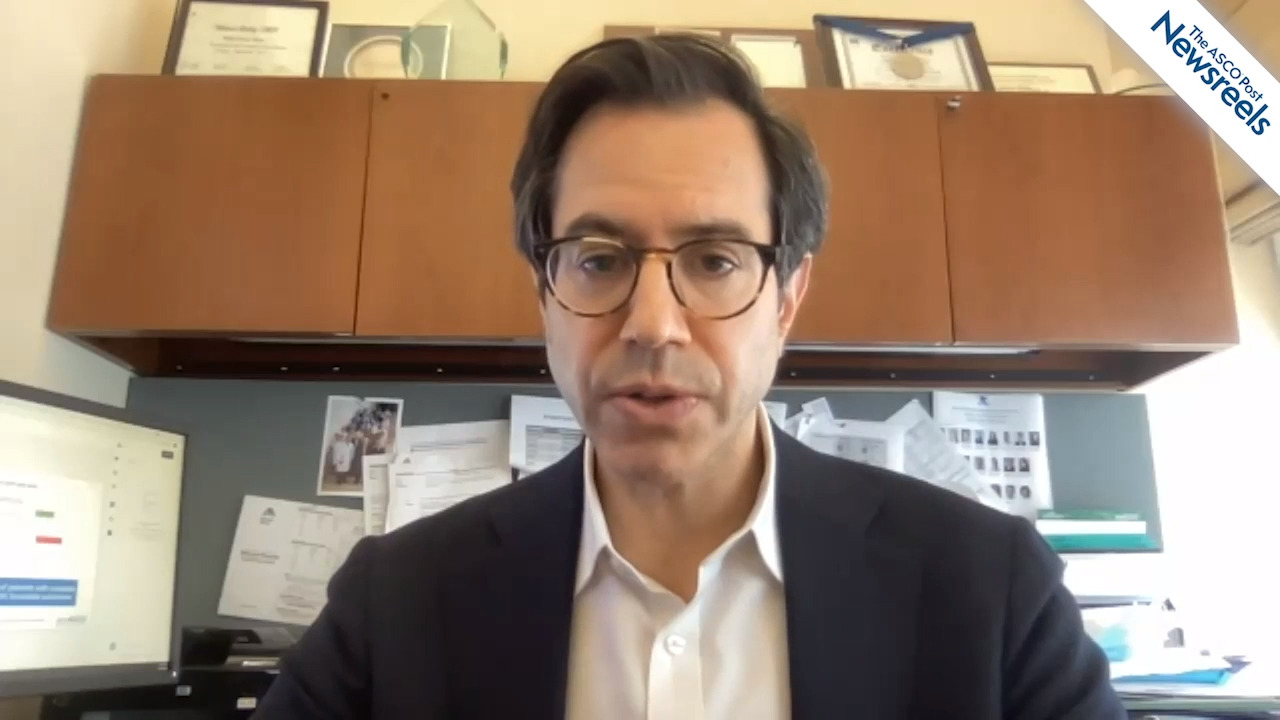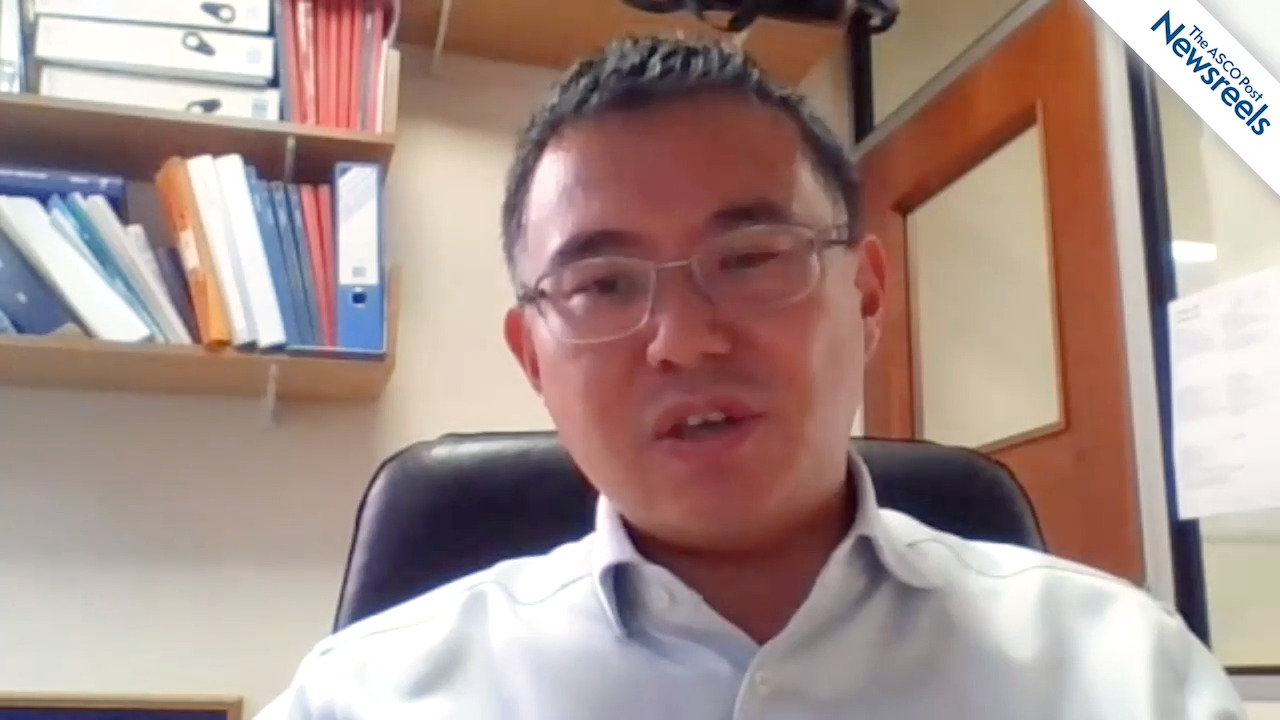Linda R. Mileshkin, MBBS, MD, on Cervical Cancer: Adjuvant Chemotherapy After Chemoradiation
2021 ASCO Annual Meeting
Linda R. Mileshkin, MBBS, MD, of the Peter MacCallum Cancer Centre, discusses phase III findings from the OUTBACK trial, which showed that adjuvant chemotherapy given after standard cisplatin-based chemoradiation for women with locally advanced cervical cancer did not improve either overall or progression-free survival (Abstract LBA3).
The ASCO Post Staff
Jingxuan Zhao, MPH, of the American Cancer Society, discusses study findings that showed worse long-term survival among low-income patients with cancer who live in states that have not expanded Medicaid eligibility (Abstract 6512).
The ASCO Post Staff
Melinda L. Telli, MD, of Stanford University, discusses results of a phase II study on neoadjuvant talazoparib in germline BRCA1/2 mutation–positive, early HER2-negative breast cancer. In this setting, talazoparib monotherapy was active and yielded pathologic complete response rates comparable to those observed with combination anthracycline and taxane-based chemotherapy regimens (Abstract 505).
The ASCO Post Staff
Matt D. Galsky, MD, of the Tisch Cancer Institute at Icahn School of Medicine at Mount Sinai, discusses results from a phase II trial designed to test gemcitabine and cisplatin plus nivolumab as neoadjuvant therapy in patients with muscle-invasive bladder cancer and to better predict benefit in those who opted out of cystectomy (Abstract 4503).
The ASCO Post Staff
Ian Chau, MD, of Royal Marsden NHS Foundation Trust, discusses first results of the CheckMate 648 study, which showed that nivolumab plus chemotherapy and nivolumab plus ipilimumab both demonstrated superior overall survival vs chemotherapy alone in patients with advanced esophageal squamous cell carcinoma. These regimens may represent potential new first-line treatment options (Abstract 4001).
The ASCO Post Staff
Neeraj Agarwal, MD, of Huntsman Cancer Institute at the University of Utah, discusses three studies that examined real-world treatment patterns and utilization of advanced therapies in men with metastatic castration-sensitive prostate cancer, which served to highlight the ways in which Black men may be treated differently (Abstracts 5072, 5073, 5704).





